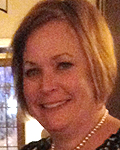Therapist Tips
 Vincent Fitzgerald,
Vincent Fitzgerald,
NFSB Clinician, MSW Fordham University, LCSW, is a member of the mental health community for 20 years during which he has worked with the mentally ill/chemically addicted (MICA) population, served as a school social worker, and psychiatric screener/mobile crisis outreach worker.
Allowing Elderly Loved Ones to Express Anxiety During COVID-19
(Originally posted on HealingProse.com)
We are living in a historical time during which every news story updates us on the prevalence and mortality rate of the Corona Virus (COVID-19), emotional response ranging from apathy among young spring breakers who believe themselves invincible, to older people whose anxiety has morphed into Obsessive Compulsive Disorder. Then there is the population most at risk of fatality; our oldest loved ones, many of whom have preexisting conditions known to increase COVID-19 lethality. Many seniors are sequestered from family, and afraid while others live with family, and are still afraid. They are experiencing intensified fear of death, being a burden to loved ones, and all the unknowns about the virus. What I am now hearing from clients who are adult children of seniors is that they are concerned about their loved ones’ anxiety, and don’t know what to do.
My suggestion is simple: Listen.
The challenge for us as adult children is managing our own anxiety about our parents dying. As anxiety often does, it causes avoidance that in this case deprives seniors of a way to process their fears or plans for the future should they contract the virus. By “plans for the future”, I am referring to preparedness for the unknown. When the elderly “have their affairs in order” it creates a sense of peace because they know loved ones will be taken care of, or will not be burdened by medical and funerary costs, or fight about division of assets. Our elderly parents would rather not be a posthumous cause of tension between family members because of an unclear will. However, it is our discomfort with these difficult conversation that turns us away from them, and deprives our parents the opportunity to process their fears.
When our elderly loved ones attempt to broach these topics, it is tempting for us to say things like “don’t worry” or “everything will be fine”. We use those deflective phrases to protect ourselves from our own sadness and anxiety about losing our parents, and deny reality to the extent we deprive ourselves an opportunity for an even deeper relationship. Although it is certainly not our intention, denying seniors the opportunity to process fear and anxiety is an invalidating rejection sure to result in feelings of isolation and increased anxiety. This is not to suggest needs are not being met on any level; it only suggests we are more likely to concern ourselves with our parents’ physical needs then their emotional needs. It is possible we forget our elderly parents have an inner world of fears and doubts that tend to be overlooked as physical needs are being accounted for, and medical appointments are kept, but if we don’t engage our loved ones in these difficult conversations, who else will?
For us to tolerate these conversations, we need to confront and accept our sadness and anxiety about loss, and remain as in the moment as we can. Having a discussion with an elderly parent about sickness and death is not going to increase the likelihood of it happening, but it will allow our loved ones to feel heard, understood, and calmed by the notion fo feeling prepared should the worst happen. Conversely, avoiding conversations about sickness and death will do nothing to prevent the likelihood of a worst case scenario, and instead invalidates our loved ones’ feelings by suggesting they are foolish or not important, and might as well be stowed and just dealt with.
I’ve encouraged clients to even initiate these discussions by “checking in” with their elderly loved ones. Questions such as “are you having any worries about the virus?” or “What are the things you are most concerned about should you get sick?” open the door to meaningful conversation that allow our elderly loved ones to not feel as if their worries are “crazy” or irrational. We all tend to feel more at peace when our feelings are understood, and when we feel heard. Although we will have some feelings of sadness and fear related to these conversations, we can always process them with spouses, siblings, or friends who are in similar positions. None of us deserves to live with a load of anxious thoughts on an endless spin cycle.
Even though we are social distancing, we can find ways to increase closeness to loved ones, even if it is a hard conversation that is strengthening our intimacy. The key for us is to process our own anxiety, and acknowledge that even in advanced age, our older parents have anxious thoughts and feelings greatly in need of validation and acceptance. Listening to them in a time of fear and uncertainty is among the many ways we can give back to our parents while teaching our children how we would like to be treated in our advanced age.
 Vincent Fitzgerald,
Vincent Fitzgerald,
NFSB Clinician, MSW Fordham University, LCSW, is a member of the mental health community for 20 years during which he has worked with the mentally ill/chemically addicted (MICA) population, served as a school social worker, and psychiatric screener/mobile crisis outreach worker.
Therapist Viewpoint For The Holidays – Relationship Triangles and Defining A Self
(Originally posted on HealingProse.com)
Thanksgiving is often idealized as an occasion during which family and friends gather around an outsized meal, and give thanks for health, achievements, and each other, but for some families, members wait until the end of the night when they can give thanks for getting away from each other and old familial tensions. It’s no secret holidays can resurrect old dysfunction, regress individuals to familiar roles, and create anxiety. Although I wasn’t surprised when these phenomena appeared at a Thanksgiving hosted by my youngest brother, I was surprised their catalyst was my foray into turkey carving.
I had never been one to embrace patriarchal tradition, but I was honored when Brian allowed me to carve our turkey as a guest in his home. Because anxiety is woven into my DNA, much of which is rooted in fear of my father’s criticism, his eyes weighed heavy on me the moment I accepted the knife from my brother. Although I am 49 years-old, educated, and somewhat successful, my childhood need for my father’s approval resurfaced, and I believed I could somehow fail at the menial task of slicing meat.
One of the patterns in my family is our tendency to launch derisive comments at each other in an attempt at humor. Ironically, as much as we all like to cut each other up, we are all highly sensitive to derision, and only recently have I understood my attempts at humor often came at the expense of someone’s feelings. Because Brian is aware of my sensitivity, he instinctively aligned with me, and walked me through the steps of turkey carving, rooting me on with every slice, and unbeknownst to him, becoming the third member of a triangle.
In Bowen theory, a triangle is the smallest stable relationship system. Triangles consists of three people, one of whom either jumps in, or is incorporated by a member of the previously existing dyad to ease tension transmitted between my father and me. It was not rooted in malice, just a perpetuation of my childhood need for approval, and my dad’s desire to feel his own elevated sense of importance. As I work towards defining a self, resolving this attachment issue with my father will liberate me from tension born of misconceptions of myself as solely an extension of him. Brian’s anxiety stemmed from fear of conflict in his home during Thanksgiving, and motivated him to insulate me, and his guests from tension.
Triangles typically consist of two insiders and one outsider who craves connection to the insiders. In our case, Brian and I held the inside positions while our father lingered outside. Tension was transmitted through the triangle as my father’s anxiety about diminished physical skills morphed into criticism of me, my fear of being scrutinized was transmitted to Brian through his awareness of my sensitivity, and Brian’s anxiety about tension was transmitted throughout the room through his reassurances of me in preservation of holiday harmony.
My father sensed some struggle when I slammed into a stubborn breast bone, and bellowed, “I see you’re having a hard time there, Vin.” When it comes to my dad, it’s not his words, but his tone that triggers my anxiety. When Brian heard this, he jumped in on my behalf and reassured the room I was doing fine, and anyone’s first time carving a turkey could be daunting. In that moment he stabilized the relationship between me and my dad by absorbing the tension, but if change was going to happen, I needed to temper my reactivity to perceived criticism, not cave to scrutiny, and not allow someone else to bail me out by surrendering the knife.
A cornerstone of defining a self is not allowing tension in the moment to create an imbalance between emotional reactivity and thoughtful response, as people function optimally when feeling and thought are balanced. With that in mind I acknowledged my struggle, and carved the bird to completion. Later on, my 75 year-old father who struggles with pain, fought to get a knife through a chocolate cake. A less mature version of myself would have sought revenge by underscoring his challenge, but only through allowing the moment to pass would change occur.
When I was finished, Brian congratulated me as if the turkey and I got engaged, and we sat to eat. When I reflect on defining a self, I acknowledge there was a time when I might have held a grudge against my father for perceived ridicule, or would have evened the score with him through some kind of verbal retaliation. Having done so would not only have laid unfair blame on my father for a generations old pattern of derision, but would have sullied the fact that he complimented me on Facebook the next day, a validation that might seem trite to some, but meant everything to me.
It is too often the case family gatherings are strained by emotional reactivity in place of thoughtful response. Such reactivity will taint family gatherings, and are hard behaviors to shake, but they are a matter of choice. In the face of old family patterns, we can choose to allow our defensiveness to rule, or we can think the problem through, and give a response that is neutral, and more likely to extinguish a spark before it becomes a brush fire.
If this sounds challenging, it’s because it is, but the fact that something is a challenge does not mean it’s impossible. Any shift in family dynamics begins with one person’s willingness to change a behavior. When ground is stuck, and efforts are consistent, the rest of the family tends to fall in line, and new dynamics are born.
Think about your own family gatherings this holiday season; try to be aware of triangles, your emotional reactivity, and the reactivity of others, and see if you can be the person in your family whose thoughtful response in the face of stress eases tension, and moves your family toward change, growth, and emotional maturity.
 Vincent Fitzgerald,
Vincent Fitzgerald,
NFSB Clinician, MSW Fordham University, LCSW, is a member of the mental health community for 20 years during which he has worked with the mentally ill/chemically addicted (MICA) population, served as a school social worker, and psychiatric screener/mobile crisis outreach worker.
Self Care Is Not Just About “Self”
(Originally posted on HealingProse.com)
In the eight months since I’ve turned the “the big 5-0”, several people have asked me how 50 is treating me. I responded to the first few inquiries with assurances it was treating me “fine”, and that I was happy to have achieved half a century of life. As I thought more about this, my answer to the next few people was more honest and insightful. I suddenly felt compelled to acknowledge that while 50 has done me no harm, I have been nothing short of abusive to it. I am fortunate to have reached an age characterized by nearing the mountain top where I will prepare for twilight years, and the downward side of the mountain. It’s okay to say that because not everyone gets the opportunity to live long enough to achieve this stage. I have to admit my preparation for my twilight has been total crap. As I write this, I am experiencing cervicogenic headaches, gastritis, high blood pressure, kidney stones, and pre-diabetes. Given I was already diagnosed with several of these conditions when I was still 49, having crossed the 50 mark has nothing to do with what can only be described as blatant disregard for my body, and reckless apathy toward the gift of life.
What has compounded my anxiety about the extent to which I’ve allowed my self-care to go to hell is my growing awareness of its impact on those around me. It’s becoming more obvious that clients, coworkers, friends, and family are all impacted by illnesses I’ve accrued through reluctance to take better care of myself. I believe this is true for all of us if we are willing to admit it. This is not to suggest we are always to blame for being sick. While we can take measures to avoid the flu, viruses, or the common cold, chances are we will be assailed by one of these bugs every now and then. The ailments to which I am referring are self-created, and often reversible through mindful choices and lifestyle changes.
Because my headaches are in the migraine family, I am typically bedridden for two days. During my last attack, I was forced to cancel clients in private practice, missed a day at my agency job, and canceled my own physical and psychotherapy. Although I could look at this from the perspective of lost wages, the impact reaches further than my wallet. Clients in distress lose sessions, my own therapists lose money, and other clients of theirs lose opportunities to be seen. My headaches are created through bad posture, tension, poor stress management, and bodily inflammation. These are all factors over which I have control, and my failure to exert that control hurts me, and causes a great deal of collateral damage. All of these factors have contributed to my decision to enter a new course of therapy I hope will help me find balance, help me understand and change my relationship with food, and assist me in coping with stress.
My poor self-care also has ramifications within my social life, as I have often missed time with family and friends because of kidney stone attacks, upset stomach, or fatigue, all of which are determined by my poor diet and exercise habits. When I am in pain, and need to cancel an engagement with friends and family, I think only of self-preservation, but once I am better, I end up sifting through the rubble of hurt feelings and missed opportunities to connect with those in th world with whom I am closest. Even though my cancellations are not willful attempts to hurt people I love, they cause frustration, and misrepresent me as apathetic and disengaged. Because we are social creatures, we have an innate responsibility to others in our social and professional worlds, and if we aren’t being responsible to ourselves, our commitments to others suffer through a subsequent ripple effect.
When I think about the purpose of living, what first comes to mind is cultivating meaningful relationships with people. We are, after all, a social species not meant to live in physical or emotional isolation. Accountability to others in our personal and professional lives is what helps us achieve the relationships necessary for a meaningful life. Only through taking care of our own physical and mental health can we ensure a sustained commitment to others. When we look at self-care through this lens, it is easy to identify self-care as more than just a social and professional responsibility. Self-care is, in fact, an ethical imperative.
 A message from the Nutley Family Service Bureau Director of Clinical Services and Programming, Joe Armentano, MSW, LCSW
A message from the Nutley Family Service Bureau Director of Clinical Services and Programming, Joe Armentano, MSW, LCSW
With the holidays and end of the year upon us, most of us find ourselves caught between the urgency of the moment to get all things done and “wrapped-up,” and the opportunity to reflect on a fresh start and resolutions as the calendar transitions us to the clean slate of a new year. With this in mind, please reflect on the article that was published in the current addition of Psychotherapy Networker. As the metaphor goes, “You should put your own oxygen mask on in an airplane before putting on the masks of others.”
So, at this time of year, should we all realize that any aspect of ourselves that reflexively leads us to the opposite, that we must be reflective to change this – and we must! Mothers, fathers, guardians, volunteers, teachers, healthcare providers, caregivers, coaches, first responders, community members, mentors, best friends, big brothers, big sisters, neighbors, co-dependents, etc…! We can all benefit from this message and I hope this article provides some insight that can be reflected on and taken in. My best wishes go out to all for a joyous, peaceful, and self-reflective year for us all.
From Psychotherapy Networker (click link to read):
Self-Care Shifts toward Authenticity by Gracy Obuchowicz
 Vincent Fitzgerald,
Vincent Fitzgerald,
NFSB Clinician, MSW Fordham University, LCSW, is a member of the mental health community for 20 years during which he has worked with the mentally ill/chemically addicted (MICA) population, served as a school social worker, and psychiatric screener/mobile crisis outreach worker.
The Deaths of Kate Spade and Anthony Bourdain Remind Us Hopelessness Disregards Wealth and Fame
(Originally posted on TapInto Nutley)
When Anthony Bourdain died by suicide three days after Kate Spade, I read social media grumblings by people insulted the rich and famous would choose to “leave it all behind,” and I was reminded we often confuse affording anything with having everything. Perhaps we believe money and fame overpowers loss and hopelessness, when in truth, hopelessness shrugs at fame, and spits in the face of wealth. Scarier still, maybe we remain imbued with belief suicide indicates weakness.
Aside from professional experience, I have had personal struggles with depression and agoraphobia. Hopelessness permeated at times, as did vague thoughts about the option of death, but I was never touched by despair that divides those who commit suicide from those who don’t.
Whether acute or chronic, hopelessness is indiscriminate in choice of victim, and celebrities whose hopelessness leads to attempted suicide are not weak or ungrateful. They have endured biological sickness that assaults thoughts the way diabetes attacks insulin production. I have yet to read about celebrities whose wealth and fame cured their diabetes.
Though separated from Spade and Bourdain by economics, we share human capacity for emotional pain. The wealthy experience lost love and personal failure like all others. How foolish are we to suggest wealth and fame heals profound emotional pain.
While severe depression drains hope from people suffering from stress both acute and chronic, other sufferers are clueless as to the source of their pain. The unfair facts of depression are that it need not be circumstantial, and while stress serves to amplify, fortune offers no abatement.
To assume wealth could insulate Kate Spade and Anthony Bourdain from hopelessness minimizes the gravitas of mental illness, and perpetuates an awful stigma that suicide is about weakness. To believe such fallacy serves only to perpetuate passivity toward the suffering. Suicide is the only cause of death in the top ten with annual increases, and we must all do what we can to ensure passivity allows no one to fall through cracks.
If you know anyone who even vaguely mentions suicide, stay connected, have local police conduct a wellness visit, or call your local psychiatric screening center. When crisis abates, you may also remember Nutley Family Service Bureau houses a team of therapists and a supportive admin staff ready to help any person who desires high quality psychotherapy.
 Vincent Fitzgerald,
Vincent Fitzgerald,
NFSB Clinician, MSW Fordham University, LCSW, is a member of the mental health community for 20 years during which he has worked with the mentally ill/chemically addicted (MICA) population, served as a school social worker, and psychiatric screener/mobile crisis outreach worker.
Why “CAN’T” is Not Allowed in My Therapy Room
(Originally posted on TapInto Nutley)
Many of us enter therapy struggling with external locus of control. We blame partners for dysfunctional relationships, accuse the universe of conspiring against us, or suggest demons assume command of our behavior. When these premises arise in therapy, I strive to help clients accept responsibility for their behaviors. Finding the word “Can’t” most often used by clients to avoid responsibility for undesirable behavior, I now seldom accept it in treatment.
A client with whom I have a deep relationship recently demanded she“Can’t” stop her binge/purge cycle. In prior sessions, I sympathized with her perceived powerlessness while we resolved childhood trauma, and disproved negative self-perceptions. Although she had gained insight, her bingeing endured, replacing relationships, and serving as a conduit to self-loathing. It was then I made the radical choice to put “Can’t” under a microscope. Hoping to underscore choice, and awaken her latent ability to be self-guided, I suggested she replace “can’t” with won’t.
When she denied bingeing was a choice, I suggested it must then be true she was also not responsible for several previous stints of remission. Because she was unwilling to credit another entity for her choice to periodically cease bingeing, she accepted responsibility for the choice to engage in such behavior, and an in-road was made.
The removal of can’t is also useful in couples therapy where blame fills the room. It always shocks each individual when I underscore their own contributions to the dysfunctional dynamic. When I suggest alternative courses of action, “I can’t”! is a frequent response, but I am quick to suggest the removal of can’t, and subsequent insertion of “won’t.” Once personal responsibility is acknowledged, change becomes possible.
We are often tempted to perceive our own actions as beyond our control, but such surrender of our will perpetuates behaviors sure to stunt progress, and hinder growth. Consider this a challenge to replacecan’t with won’t, and assess how it feels to accept responsibility, and regain control. In the end, we are the authors of our own narratives, and are the only creatures on Earth with the ability to change our circumstances through force of will.
Tricia Politi,
LCSW, Nutley Family Service Bureau therapist, is also a wife, mother, daughter, sibling, friend and volunteer.
Happy New Year: Investment Strategies for 2017
For the year ahead, resolve to focus your time and energy in the following three investment strategies, which will pay off all year long:
Invest in yourself. Investing in yourself does not require a financial commitment, but rather is an act of love and self-care. Set aside time to do something that inspires you. Pursue an outlet that will bring meaning to your life. Say no to requests and demands on your time that leave you feeling depleted. If you want to make a major change in your life, break the process down into manageable steps and be patient with yourself as you make progress toward your goal. Forgive yourself when you encounter setbacks. Allow yourself to experience the journey with as much peacefulness as possible. Speak to yourself with the same loving words you would use with the person you care about most.
Invest in others. When the problems of the world seem too overwhelming, “double -down” on the people and relationships in your life that matter most to you. While it is impossible to shut out the often-harsh realities of modern life, instead of giving up, invest your time and energies on those you love and care about. If you have fallen out of touch with a friend, reach out and reconnect. If you are holding onto negative feelings with someone, find it in yourself to forgive and move ahead with a more positive attitude. No one has ever said, “I wish I had fewer friends!” Invest in your community. While we may feel powerless to effect change in the world, the place where we can make a significant difference is in our communities. Whether it is by volunteering at a soup kitchen, food pantry, or thrift shop, or fundraising for a local charity, or simply by routinely responding with kindness to those who are struggling – we can make a significant impact in the lives of our neighbors.
Investing in community, not only benefits others, but is good on a personal level as well because it creates empowerment. When we feel empowered, we cannot help but feel good. When we feel good about ourselves, we feel hopeful. When we have hope, wider horizons open to us.
By investing in ourselves, in others, and in our communities, we create meaning in our lives and make sense of the world around us. These investments can yield long term dividends if internalized and maintained throughout one’s life!
 Ann Goldstein,
Ann Goldstein,
LCSW, Nutley Family Service Bureau therapist, holds a post-graduate certificate from Fordham University in Child and Adolescent Therapy.
What to Say to Children When They Are Anxious
Anxiety has a way of making everyone feel helpless – the ones in the midst of an anxiety attack as well as the ones beside them who would do anything to make it better. It’s difficult to know exactly what to do when your little person is flooded with anxiety. Different things will work for different people, so don’t be afraid to experiment with what works best. READ FULL ARTICLE from “Hey Sigmund” by Karen Young.
NFSB offers Play Therapy for children working towards better socio-behavioral interactions, emotional regulation, and trauma resolution. The therapeutic model uses toys, art supplies, and games to elicit children’s thoughts and feelings. It is available to the youngest of children and provided by our staff specialist in child therapy, Ann Goldstien MSW, LCSW in conjunction with the family’s primary therapist to ensure an integrated healing process for all family members involved
SPOTLIGHT

5 Tips To Reduce Stress During The Holidays
Family, friends, fun, and food: holidays can be the best of times. But they’re also stressful times, full of demands and deadlines. Here are 5 tips to help reduce stress during the holiday season and throughout the year from our clinicians at NFSB.
DOWNLOAD FLYER.

5 Questions To Ask If Someone You Know Expresses Suicidal Ideation
No expression of suicidality is to be underestimated. I served two of my 20 years in mental health as a psychiatric screener for a major New Jersey hospital where I gained experience and insight too valuable to not share with as many people as I can. In those two years I interviewed many people in the throes of anxiety, depression, and suicidality. Our lives intersected on their worst day, and my charge was to discern if they met the legal definition of mental illness.
READ MORE…

Five Signs You Have Developed Panic Disorder
Panic launches relentless attacks on both mind and body. Anyone who has ever experienced such an assault is familiar with shallow breathing, nausea, sweating, rapid heart rate, and lesser known symptoms like derealization and depersonalization. Once symptoms subside, sufferers are exhausted, and require significant recovery time. Such is the result of our own bodies poisoning us with adrenaline for reasons known only to itself. Some people might experience an attack or maybe even two, and then never again feel consumed by dread and imminence of death, but others are not so fortunate. Those people whose brains are tattooed by panic attack experience life altering effects.
READ MORE…













